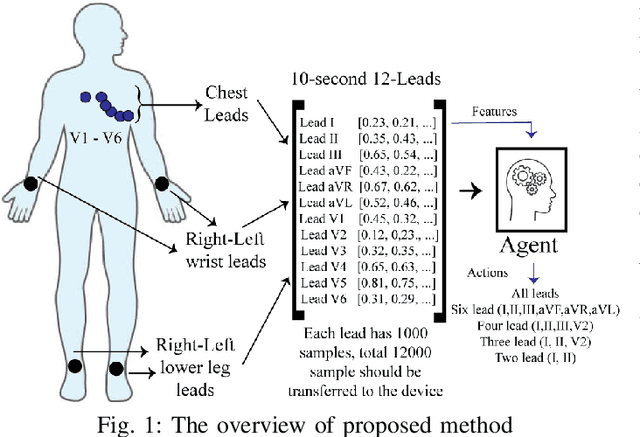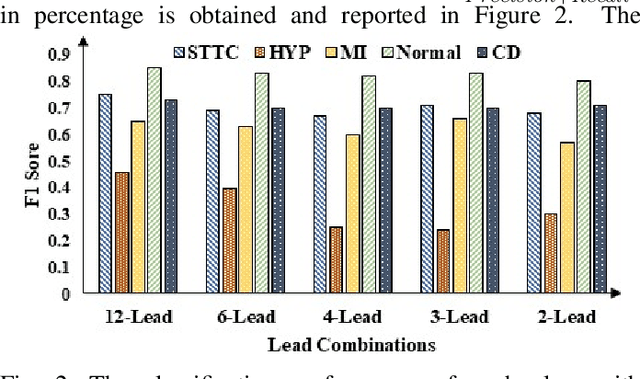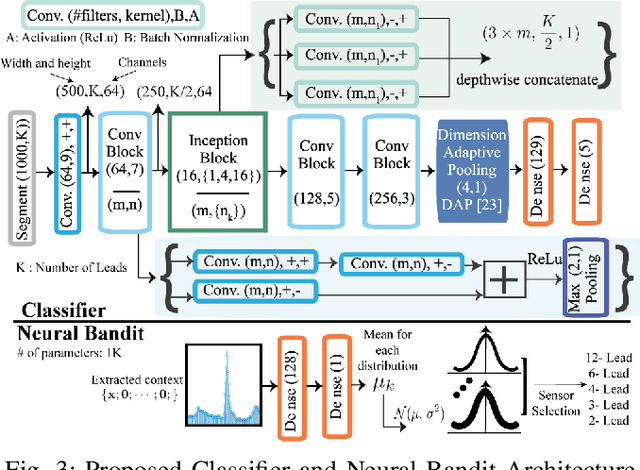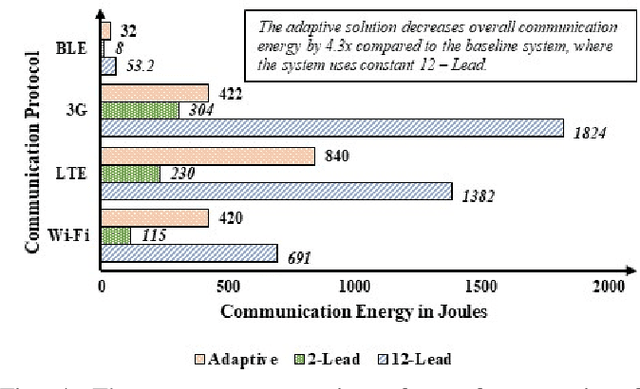Neural Contextual Bandits Based Dynamic Sensor Selection for Low-Power Body-Area Networks
Paper and Code
May 24, 2022



Providing health monitoring devices with machine intelligence is important for enabling automatic mobile healthcare applications. However, this brings additional challenges due to the resource scarcity of these devices. This work introduces a neural contextual bandits based dynamic sensor selection methodology for high-performance and resource-efficient body-area networks to realize next generation mobile health monitoring devices. The methodology utilizes contextual bandits to select the most informative sensor combinations during runtime and ignore redundant data for decreasing transmission and computing power in a body area network (BAN). The proposed method has been validated using one of the most common health monitoring applications: cardiac activity monitoring. Solutions from our proposed method are compared against those from related works in terms of classification performance and energy while considering the communication energy consumption. Our final solutions could reach $78.8\%$ AU-PRC on the PTB-XL ECG dataset for cardiac abnormality detection while decreasing the overall energy consumption and computational energy by $3.7 \times$ and $4.3 \times$, respectively.
 Add to Chrome
Add to Chrome Add to Firefox
Add to Firefox Add to Edge
Add to Edge